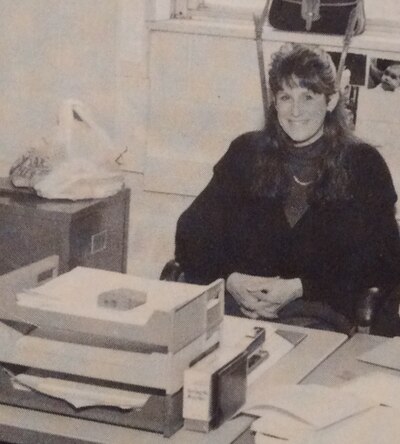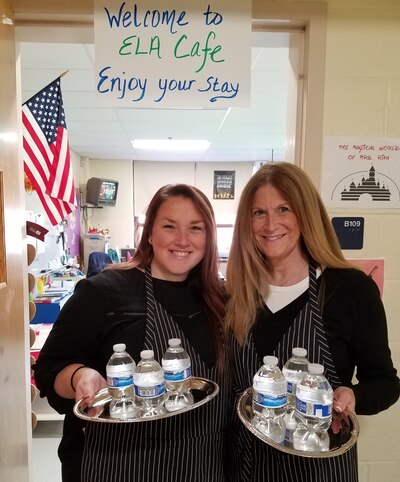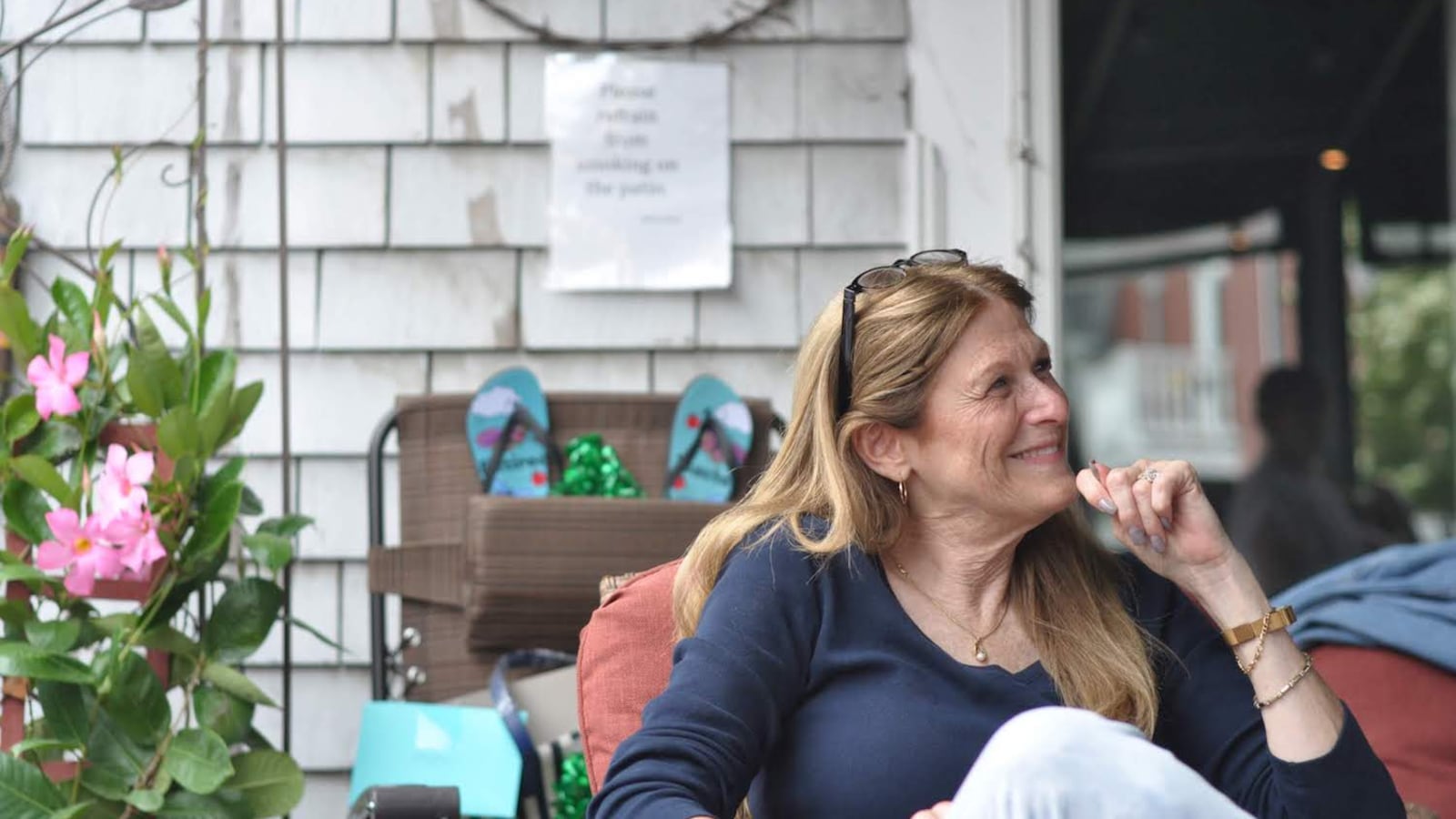During the month of July, Chalkbeat’s long-standing series, “How I Teach,” will shift its focus to stories of educators as they navigate the transition into retirement. We’ll feature longtime educators from around the country, starting with Connecticut special education teacher Jill Goldman.
With nearly 40 years in the classroom, Goldman has outlasted many of the policies that dictated the way she was asked to teach her middle school special education students in West Haven, Connecticut. Teaching in a state with a persistent achievement gap between students from low-income families and those from wealthier families, Goldman has seen many efforts to address the gap for her students, including the evolution of the federally mandated Individualized Education Program for special education students, and the shift to inclusion for students with disabilities.
But if you ask Goldman, the work is first and foremost about building relationships with youth and their families, as well as a commitment to advocating for students during one of the most turbulent times in their lives — middle school.
I know Goldman’s dedication quite well because she is my mother. As my mom has gotten closer to retirement, I’ve pushed her to think about what’s next — admittedly with the blind optimism of someone who doesn’t totally get what it means to do one job for 40 years. In the Q&A below, readers will hear about my mom’s distinguished career, her love-hate relationship with routines, and the ways she embraced innovation.
As you read through my mom’s story, I encourage you to think about what it means to be successful in a job that often requires a delicate balance between top-down education policy and day-to-day classroom obligations. And when being a good teacher means giving so much of yourself to your students and your school, what happens when you stop teaching?
Chalkbeat’s summer series, “How I Teach — Retirement Edition,” aims to give voice to teachers who are in the thick of answering this question themselves. I hope you’ll return to this series over the next few weeks to read the reflections of dedicated veteran educators.
Looking back, what made you start teaching?
When I was in college, I volunteered for the Special Olympics. I really enjoyed being part of that group — it felt like a calling. I was in awe of the athletes and how they persevered no matter what. My volunteer title was “Hugger” because during races, I stood at the end of the finish line and hugged everybody that crossed. Actually, I hugged everyone, even if they didn’t cross. It was so clear the athletes felt accomplishment, and I loved being part of their joy.
At the time, my undergraduate major was psychology because I thought I wanted to be a dance therapist. Looking back, I think what I really wanted was to be in a helping profession. After my first time volunteering with the Special Olympics, I decided to take a special education class my freshman year and ultimately changed my major to special education.
How have the expectations for teachers changed since you first entered the classroom?
It is vastly different today. Perhaps most notably is the Individualized Education Program. In my early teaching days, it was an

important document, but not the behemoth it is today. To put it in perspective, they were five pages when I first started; now they’re 12 pages.
The other difference was the shift from resource rooms to inclusive classrooms. At the start of my career, there were only two scenarios for special needs students: Self-contained classes for students who needed more individualized support than their regular education class could provide, and second was the resource room. The resource room was the place where students could get additional help for a number of hours each week.
Now, with the inclusion model, students are supported by the special education staff within the regular education setting. As the special education teacher, I was given a caseload of 15-20 students to support in their regular class periods. Sometimes I worked with students in the back of the class in small groups, or we went the library if they needed quiet space to work.
What advice would you give to teachers who are just starting out in their careers?
For teachers going into districts with transient populations, it’s important to manage the constraints with grace and persistence. You can’t anticipate when a student is going to leave, so it’s extremely important to build a relationship with the child, understand what gives them joy, and observe with intentionality so you can see how they learn best.
I had a seventh grader who came to us mid-year from foster care in another system. The student struggled with various emotional disorders and suffered from frequent outbursts throughout the school day.
The educational team was committed to learning more about this student so we spent every free moment connecting. By investing in these small moments, we were able to build trust with the student. This allowed us to help before outbursts happened, and instead, channel their feelings into productive moments of reflection.
Perhaps this goes without saying, but teachers have to understand all of the nuances of the profession and the real time that’s involved. The hard part is, I don’t think you get a clear sense of the job until you are in the throes of it. I recommend that incoming teachers figure out how to shadow a teacher so they can see those moments that they often don’t get to see as a student teacher — things like making calls to parents, connecting with colleagues to troubleshoot and commiserate, finding time to eat lunch.
Tell us about your post-retirement plans, and what you’ll have time to do now that you didn’t have time to do before.
My brother owns a food truck — Skyscraper Sandwiches — so I’ll spend my summer and early fall feeding the good people of Connecticut Reuben sandwiches. After that, I really don’t know. As a teacher, I’ve become so used to routine. There’s the routine of the school day and the routine of the school year. It’s all so new right now, I feel like I’m in uncharted waters for the first time in a very long time.
That said, I’ve always wanted to find more time to volunteer. There’s a group called Read to Grow, where you go to hospitals and talk to new parents about literacy. I’d like to investigate that further.
What are some things that helped you take care of yourself and avoid burnout amid the demands of your job/career?
I’ve tried my best to not take things too seriously, and have other interests, like going to the theater, locally and in New York City, and hiking, which gives me a chance to recharge my batteries. I will say though, over the last five to 10 years, it’s become incredibly difficult to feel like you can switch gears to life outside of school. The last few years, I’ve given parents of my students my cell phone number. The reality is, it’s so much easier to get in touch with parents with my cell phone versus asking them to call the school and leave a message. The downside is, I’ve managed to become perpetually connected to my work.
What’s one thing you won’t miss about your job once you retire?
Paperwork.
And one thing you will miss?
The friendships. The camaraderie. The routine. I’ve made some lifelong friends who are integral to my success as a teacher and who I am as a person.

And as much as the routine was a pain, I knew where I had to be, and what I had to do every day. I had a purpose when I got up every day at 4:40 a.m. to get out of the house by 6 a.m., for a 70-minute drive (on a good day) to get to school.
I’d like to add that I’ve had some pretty incredible memories from my years as a teacher. For example, I had a student this year who was functioning at three to four grade levels below his seventh grade peers. The educational team made the difficult decision to put this student in a self-contained class. It’s hard to tell how a student will connect with that space. Within a week, I saw him walking down the hall and his entire demeanor had changed. At four foot nothing, this student was walking at six feet tall. During the last marking period, this student was named the Student of the Quarter. What made this moment even more incredible, was that this student’s dad is in the service and was getting deployed the day of the ceremony, but was able to make the celebration before he left. Just last week, this student sent me a note that said, “Thank you for getting me into this class.”
If you had it to do all over again, would you choose a career in teaching?
I would. This is an honorable profession, and I like to think I made a difference. It’s not an easy job, but that doesn’t make it any less worthwhile.
Allison Lee is an education professional with over 10 years of experience working for organizations including the New York City Department of Education, 4.0 Schools, and most recently Big Thought in Dallas, Texas. Allison has been a member of the Chalkbeat Reader Advisory Board since 2017.


